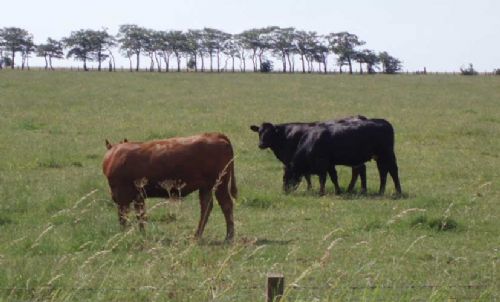
The National Beef Association (NBA) is drawing attention to a change in the TB rules which it feels many farmers do not know about and will hugely affect how they manage their businesses if they are affected by TB.
Early in February, Animal Health and Veterinary Laboratories Agency (AHVLA) withdrew the ability for certain TB-affected farms to restock their herds. Specifically, when a reactor presents lesions at slaughter, or disease is cultured in the laboratory, the farm it came from will not be permitted to bring in stock until it has completed its first Short Interval Test (SIT) 60 days after the reactor animal has left the farm or been suitably isolated.
Bill Harper, NBA TB Committee Chairman, says: ’The rules only changed at the beginning of this month but we are concerned that not enough farmers know about it and could be severely affected.
’Our members who have already been hit by the change have voiced huge surprise at the goalposts being moved and we feel everyone should be aware of what’s going on so they can prepare their businesses, in whatever small way they can.
’While no one wants to be the bearer of bad news, this change really does need to be better communicated to farmers, because of the huge impact it can have on those suffering under the already crippling effect of TB rules.’
Mr Harper says the change is one of the results from the recent TB audit by the EU Food and Veterinary Office (FVO). The audit threw up concerns about England’s TB eradication plan and this restocking rule change (along with others planned for the future) is necessary to ensure that the EU continues to fund England’s TB programme and also allows trade between England and the rest of Europe.
However, the intervention of the TB Eradication Group (TBEG), on which Mr Harper sits, means the restocking rule is only being applied to herds with confirmed TB, whereas the rule change was initially aimed at every herd with reactors. Instead reactors that are not found to have lesions at slaughter are classified as OTF-suspended (rather than withdrawn) and can continue to move stock onto the holding on a satisfactory risk assessment.
Mr Harper says: ’This was a win for the industry and, while the new rule will be painful for some, at least we have reduced the number of herds it will impact.’
As well as bringing England in line with EU law, AHVLA says putting a stop to restocking in this specific situation will also help reduce the length and severity of breakdowns. AHVLA says it always recommended herds waiting until the first SIT before restocking, meaning this is a ’tightening of current procedure’, rather than a complete change.
However, Mr Harper says the new rule will still come as a complete surprise to some and impact businesses, particularly beef finishing units: ’Some herds will be affected more than others and some farmers may wish to put in a contingency plan in case they become affected. For example, finishing units may wish to keep clearly separate groups where movements can be clearly traced, as this may increase the chance of movements being permitted under licence where a clear need is demonstrated.
’But of course the best solution is to really start the process of reducing and eventually eradicating TB from the UK. We are going to see more pressure on the rules, as a result of the FVO audit and cost restrictions from Defra, so we really need to be making quicker steps towards ridding the industry of the disease.’
In summary, this is what the rule change means:-
’ No on-movements will be licensed onto herds where the Official TB Free (OTF) status has been withdrawn, until the first short interval test (SIT) has been carried out and all reactors removed.
’ Previously farmers should move cattle into isolated facilities on completion of a veterinary risk assessment, without waiting for a SIT.
’ Farms have their OTF status withdrawn only when a skin test reactor animal is found to have lesions or if the disease is cultured at a laboratory, as it is felt these herds pose a higher risk.
’ Reactors that are not found to have lesions at slaughter are classified as OTF suspended (rather than withdrawn) and can continue to move stock onto the holding on a satisfactory risk assessment.
’ Movements following the first SIT and subsequent tests will continue to be granted on the basis of a veterinary risk assessment.
’ There are some exceptions on welfare grounds, including bringing in replacement suckler calves and breeding bulls, but these will be decided on a case-by-case basis by AHVLA.
’ The rule change also applies to Wales, but will not result in any real change, as Wales was not issuing licences unless the first SIT had been completed.
